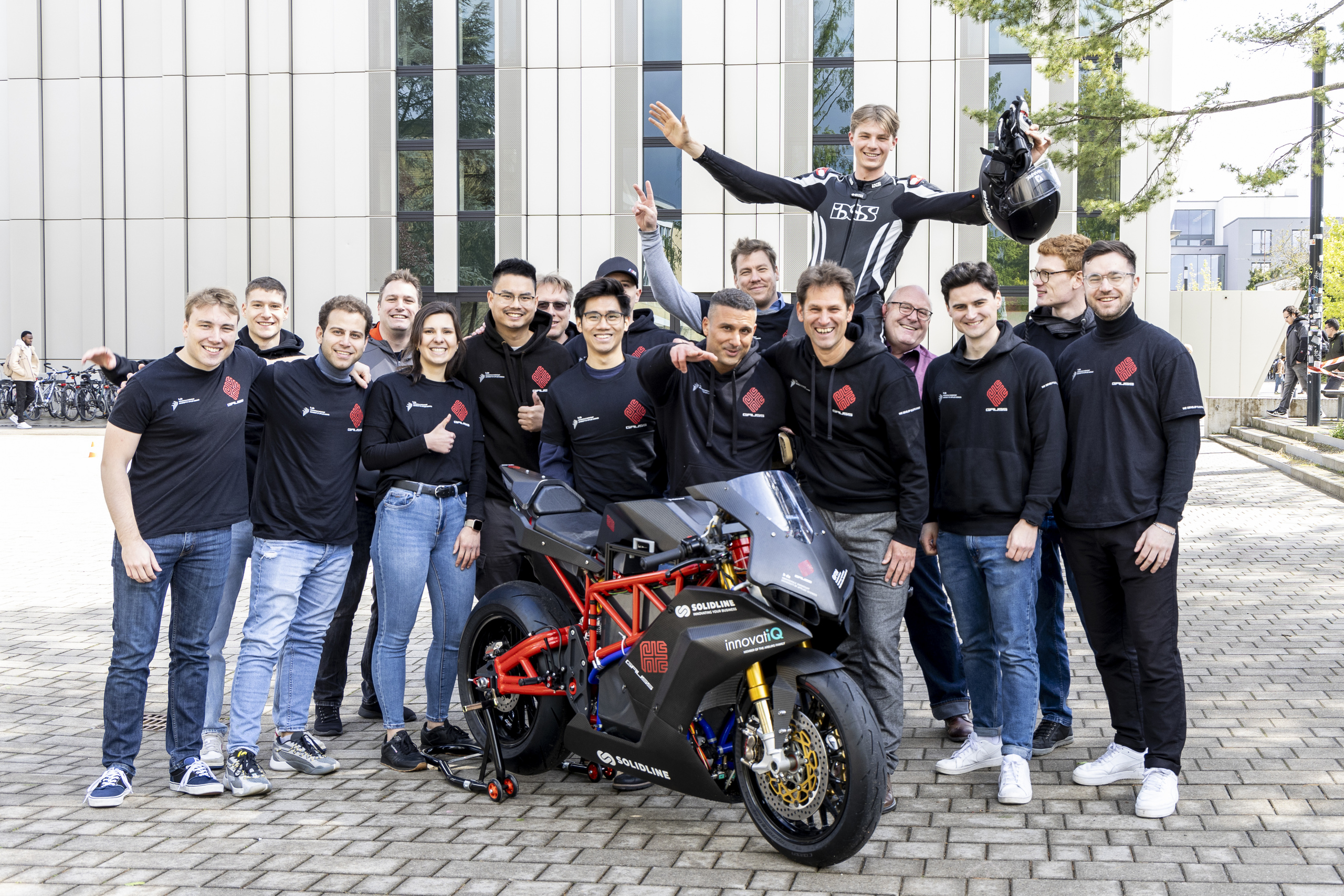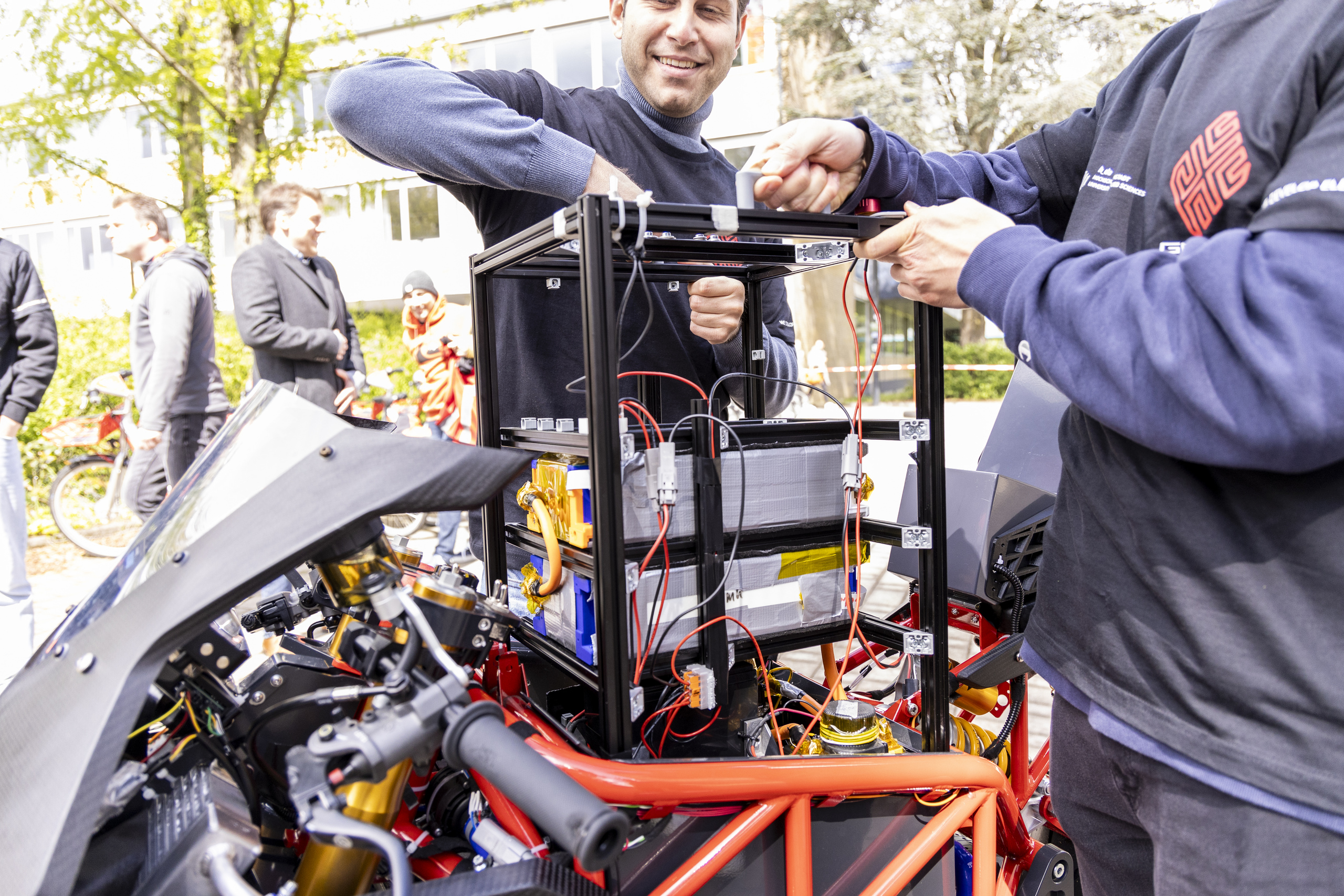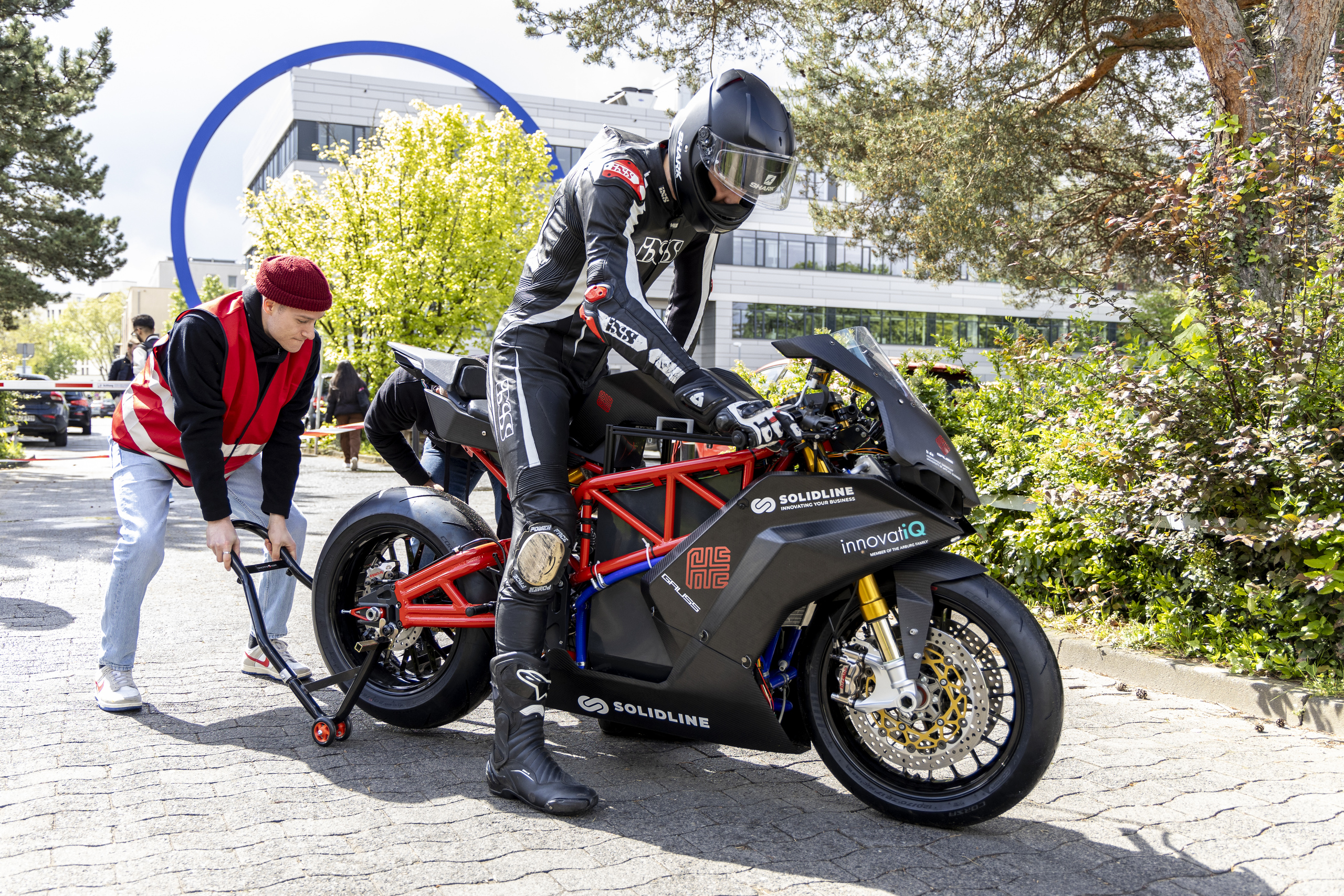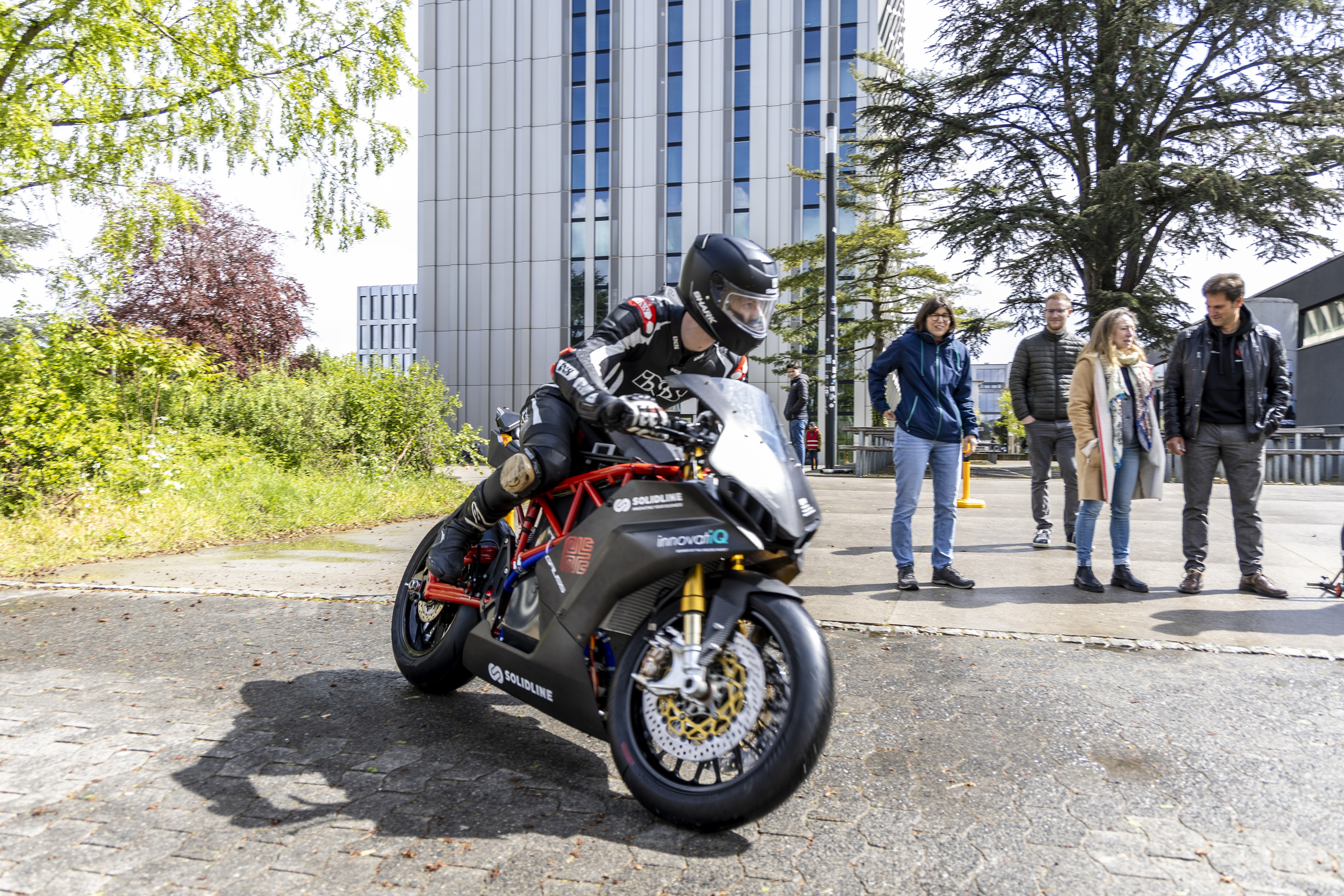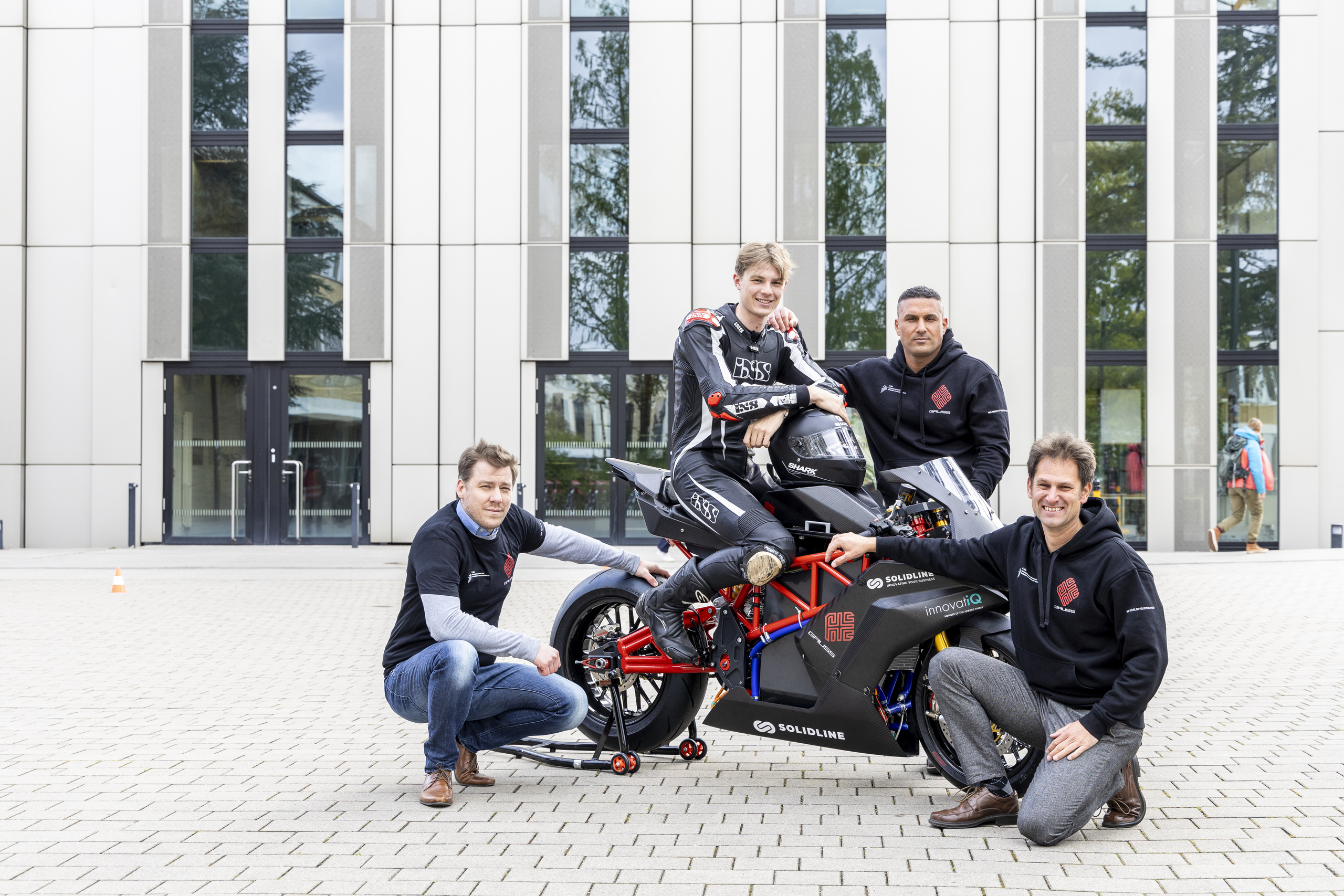Gauss

An interdisciplinary team of students at Darmstadt University of Applied Sciences (h_da) is in the process of developing an electric sport motorcycle with quick-change batteries and a snazzy design. They have now presented their prototype “Gauss II” for the first time during a short ride on the university campus. The students’ goal is a 24-hour race with their red and black hotrod.
By Simon Colin, 29.04.2024
It looks good and most of its parts have been developed in-house: the electric sport motorcycle “Gauss II”, on which 15 students from the following h_da faculties are working: Electrical Engineering and Information Technology; Computer Science; Mechanical and Plastics Engineering; Darmstadt Business School. The students designed the racy e-superbike themselves on the computer, and the frame, which is partly carbon-clad, was also developed in-house. It is devised to accommodate an easily accessible battery module that will allow quick swapping of the batteries at races in the future.
It is indeed the battery capacity that is currently a headache when it comes to electric motorcycles. The space for battery modules is limited, battery capacity is insufficient, and the range is correspondingly short. That is why electric motorcycles have not yet caught on in the wider market. Motorsport, by contrast, means shorter distances, and here it is speed that is particularly important. Like in car racing, the time spent on pit stops can the deciding factor. This is where Gauss II – with its quick-change batteries – can score. There is enough space for up to 12 modules, which can supply up to 20 kWh of power, depending on the setup. With a target voltage of 700 volts and a motor torque of 500 nM (newton metres), the motorcycle would then be at racing level.
Pioneering electrical engineer as namesake
The ultimate aim is for Gauss II to have an output of 200 kW, which is roughly equivalent to 270 hp. The motorcycle weighs 220 kilograms and is water-cooled: three independent cooling circuits regulate the temperature of the battery modules, engine, and power management inverter. The motorcycle is named after the German scientist Johann Carl Friedrich Gauss (1777-1855), who, like Nikola Tesla, was a pioneer in the field of electrical engineering. Like the tesla, the gauss is a unit of magnetic flux density (10,000 gauss = 1 tesla). A fitting name, thought Attila Kiss, who developed “Gauss I”, Germany’s first student-built electric sport motorcycle, in 2014. As a lecturer, he is now supervising the student team led by project manager Ali Kücük.
Jens Hoffmann, Professor of Electromobility at the Faculty of Electrical Engineering and Information Technology, coaches the students as academic project manager. “We are seeing an increasing number of electric models in the motorcycle sector, too. More powerful batteries are currently under development. Within the project, our students are learning how to use high-performance storage systems for the leading-edge field of electromobility. Especially in the sport sector, this makes it possible to open up new horizons and deliver new impetus for later use in the wider market.”
Sights set on 24-hour race
The students’ next big goal is to take part in a 24-hour race: they will ride their motorcycle around the clock to test and max out the battery changing system developed in-house. To this end, they are currently practising in the laboratory and on a test track in the Odenwald. They also plan to show “Gauss II” at trade fairs this year.
The team’s background
An interdisciplinary team from the following faculties is currently working on the “Gauss II” electric sport motorcycle as part of a student research project: Electrical Engineering and Information Technology; Computer Science; Mechanical and Plastics Engineering; Darmstadt Business School. Most parts of the motorcycle have been developed in-house. The students are using it to test new e-mobility technologies. At the same time, they are dealing with technical project management, including purchasing, sponsoring and cost management. Electromobility expert Professor Jens Hoffmann and lecturer Attila Kiss are their technical supervisors. In 2014, Kiss developed “Gauss I”, Germany’s first student-built electric sport motorcycle.
Contact
Christina Janssen
Science Editor
University Communication
Tel.: +49.6151.533-60112
Email: christina.janssen@h-da.de
Translation: Sharon Oranski
